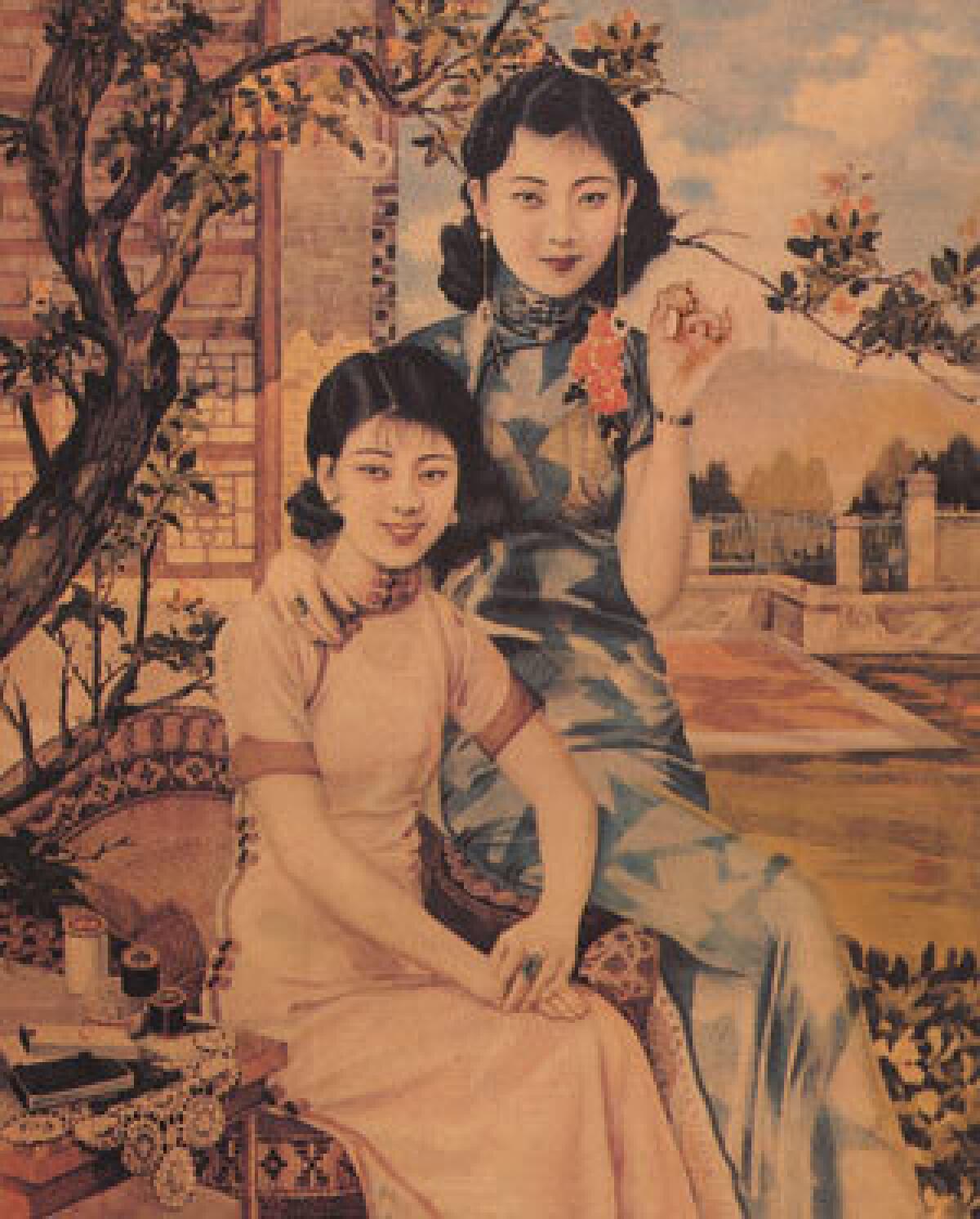Book Review: ‘Dreams of Joy’ by Lisa See

- Share via
Dreams of Joy
A Novel
Lisa See
Random House: 354 pp., $26
With each new novel, Lisa See gets better and better. Each work is more tightly woven, richer with information, its characters more memorable than the last.
In her previous novel, “Shanghai Girls” (2009), See gave us an unforgettable portrait of Shanghai, of its cosmopolitan ways and elegant atmosphere that made it a cultural center of Asia, and of two sisters thriving in that world of beauty and delicacy — until history intrudes and forces them to leave it all behind for an uncertain future far away in Los Angeles.
And so it is with “Dreams of Joy,” which picks up where “Shanghai Girls” left off, giving us the story of a young Chinese American woman’s search for her father and her three-year odyssey in the People’s Republic during Mao Tse-tung’s Great Leap Forward. The scope of the novel is astonishing — including the ingenious ways Chinese women handled their menstrual periods and the carefully concealed and shocking stories of starvation in the communes, the suffocating collectives into which the country was divided. (This starvation was due, in part, to central government edicts to focus on industrial production rather than agriculture.) See aims her pen at the most vivid aspects of daily life but never loses sight of the sweep of history.
Joy, 19 in 1957 and growing up in L.A.’s Chinatown, has just made several powerful discoveries: that her aunt (one of the sisters) is her real mother; and her father, who has committed suicide just two weeks previous, was illegally in the U.S. He was not even her real father, she learns, and his suicide was partially her fault because by participating in civil rights organizations in college, she has called attention (these are the feverish McCarthy years) to her family and his citizenship status.
Armed with her actual lineage after a big fight with her mother and aunt, Joy takes some money from the family cookie jar and flies to China to find her real father, a well-known artist in Shanghai. Along the way, she must turn over her passport and convince the authorities that she wants to join the brave new experiment that is Mao’s Great Leap Forward. The novel is front-loaded with all of these revelations, and continues to move extremely quickly until the very end — one of those hard-to-put-down-until-four-in-the-morning books — but happily, the action is not all external.
This is often the difference between forgettable and unforgettable books. Characters must change when they are given a 350-page stage or we will surely lose interest. So much happens to Joy and to her (real) Aunt Pearl, who goes looking for her — both must jettison core beliefs and become supple, flexible players in their own lives.
Pearl, who has not been back to China in 20 years, must grapple with the belief that Joy’s father, the artist Z.G. Li, was the true love of her life, in spite of the fact that he loved her sister, May, Joy’s real mother. She must also adjust to the reality that the new China is vastly different from the one she left. She does find Joy but is unable to persuade her to return to America, so she settles in for the long haul — one of the best depictions of the true spirit of motherhood you’ll ever see in fiction.
Soon after her arrival in Shanghai, Joy finds her father and immediately follows him to a small village, a collective where he teaches the local people how to make posters. Joy falls in love with the spirit of the collective, and with one of the young farmers. Her slide into the collective mentality is very deftly drawn and so important to a reader who may know a little about the politics and history but not about how it feels to get swept up in this or any movement.
Joy marries the farmer, Tao (against Pearl’s better advice), and moves into a two-room shack for 12 people. Her initial enthusiasm for the Great Leap wanes with backbreaking labor and horrifying stories of mothers swapping babies so that they can eat them, along with other forms of cannibalism and brutality.
Stories of the lives of women in the People’s Republic of See’s novel are particularly deep and unforgettable. In See’s first book, the nonfiction and partially autobiographical “On Gold Mountain,” she followed the paths of her Chinese American ancestors. It is clear that much of the pleasure she derives from writing lies in the research; learning more and more about the history of China, gathering stories we Americans might not otherwise hear. This is, after all, a story about women who are always fated to trade one form of disappointment for another and See captures the nuances of those decisions with remarkable acuity. Here, See tells the story of Yong, an old woman who lives in the village and was once a concubine in the home of the original landowner in feudal days. She is unable to work much in the fields because of her bound feet. When starvation becomes severe, she is publicly denounced in a cinematic and moving scene for her “laziness.” It’s this kind of layered history, the archaeology of character that See writes so well.
Of course there are dangers in confusing fiction with history, but there is so much nuance and so little evidence of revisionism in “Dreams of Joy.” In the end, it’s a story with characters who enter a reader’s life, take up residence, and illuminate the myriad decisions and stories that make up human history.
Salter Reynolds is a writer in Los Angeles.
More to Read
Sign up for our Book Club newsletter
Get the latest news, events and more from the Los Angeles Times Book Club, and help us get L.A. reading and talking.
You may occasionally receive promotional content from the Los Angeles Times.










